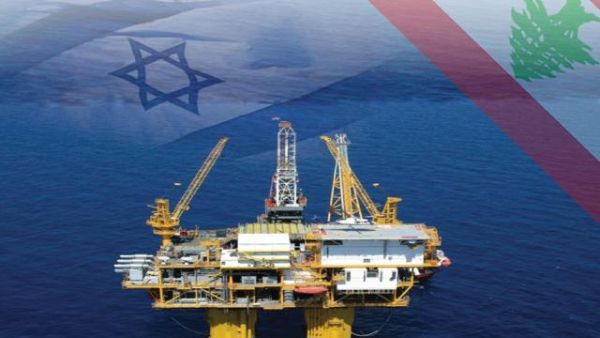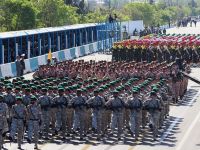The Cabinet agreed on the line of demarcation for Lebanon’s Exclusive Economic Zone Monday, in anticipation of future plans to drill for oil and gas in Lebanese territorial waters and amid a dispute with Israel over a maritime area that spans some 860 square kilometers.
In July, Israel’s Cabinet approved a map of its proposed maritime borders, a move which Lebanon described as an “aggression” against its natural gas and oil rights. The government also threatened to file a complaint against Israel under Chapter 7 to the U.N. Security Council.
Prime Minister Najib Mikati, who chaired the Cabinet’s session Monday, warned of the widespread proliferation of weapons among the Lebanese, saying it undermines the state’s authority. The prime minister called on security forces to tighten measures to fight crime on the one hand and stressed the need to address the Lebanese’s people social needs on the other.
“This matter security incidents shows that some do not fear punishment or security forces and they are undermining the authority of the state and its capability to preserve security,” Mikati said. Mikati said that Lebanon is committed to implementing international resolutions, particularly those concerning Lebanon and the Middle East, ahead of his departure Saturday to New York to participate in the meeting of the U.N. General Assembly.
Sources told The Daily Star that Mikati is expected to hold talks on the sidelines of the meeting with U.N. and Western officials, where he is expected to reiterate Lebanon’s commitment to fund the Special Tribunal for Lebanon. Despite Mikati’s commitment to fund the U.N.-backed court, sources close to the prime minister said no information was made available on whether the Cabinet would hold discussions on the payment of Lebanon’s share to the court.
Media reports have said that President Michel Sleiman and Mikati could authorize Lebanon’s payment to the Justice Ministry, which in turn could pay the court. Mikati, who is to preside over the U.N. Security Council once Sleiman returns from New York to Lebanon, voiced hope that Lebanon’s presidency of the U.N. Security Council would benefit the country.
The Palestinian Authority will seek recognition of an independent state on 1967 borders, including the West Bank, East Jerusalem and Gaza, during the U.N. General Assembly and Security Council meetings. Meanwhile, the Cabinet postponed discussions over a proposal to reform the public transportation sector, awaiting the formulation of comprehensive plan to resolve the issue. However, according to ministerial sources, the failure of the Cabinet to approve the reform plan was due to political bickering between the Free Patriotic Movement and the Progressive Socialist Party. The sources said the approval of the plan was subject to a bargain over the plan to develop Lebanon’s electricity sector.








